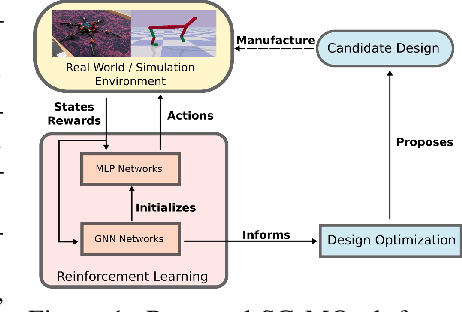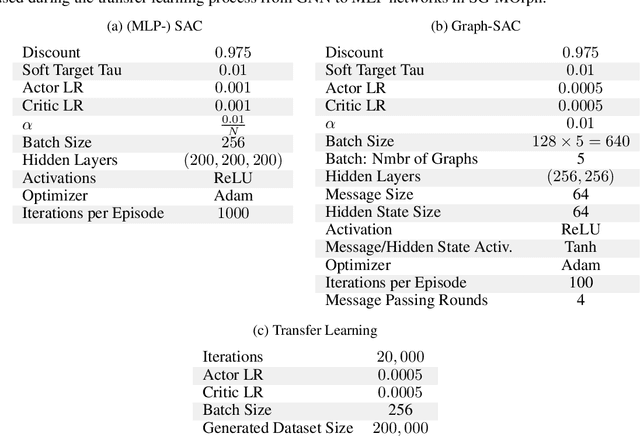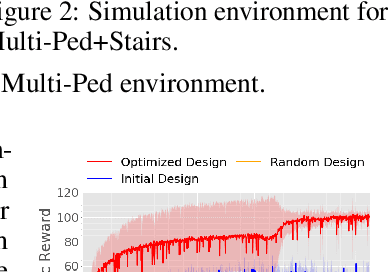What Robot do I Need? Fast Co-Adaptation of Morphology and Control using Graph Neural Networks
Paper and Code
Nov 03, 2021



The co-adaptation of robot morphology and behaviour becomes increasingly important with the advent of fast 3D-manufacturing methods and efficient deep reinforcement learning algorithms. A major challenge for the application of co-adaptation methods to the real world is the simulation-to-reality-gap due to model and simulation inaccuracies. However, prior work focuses primarily on the study of evolutionary adaptation of morphologies exploiting analytical models and (differentiable) simulators with large population sizes, neglecting the existence of the simulation-to-reality-gap and the cost of manufacturing cycles in the real world. This paper presents a new approach combining classic high-frequency deep neural networks with computational expensive Graph Neural Networks for the data-efficient co-adaptation of agents with varying numbers of degrees-of-freedom. Evaluations in simulation show that the new method can co-adapt agents within such a limited number of production cycles by efficiently combining design optimization with offline reinforcement learning, that it allows for the direct application to real-world co-adaptation tasks in future work
 Add to Chrome
Add to Chrome Add to Firefox
Add to Firefox Add to Edge
Add to Edge